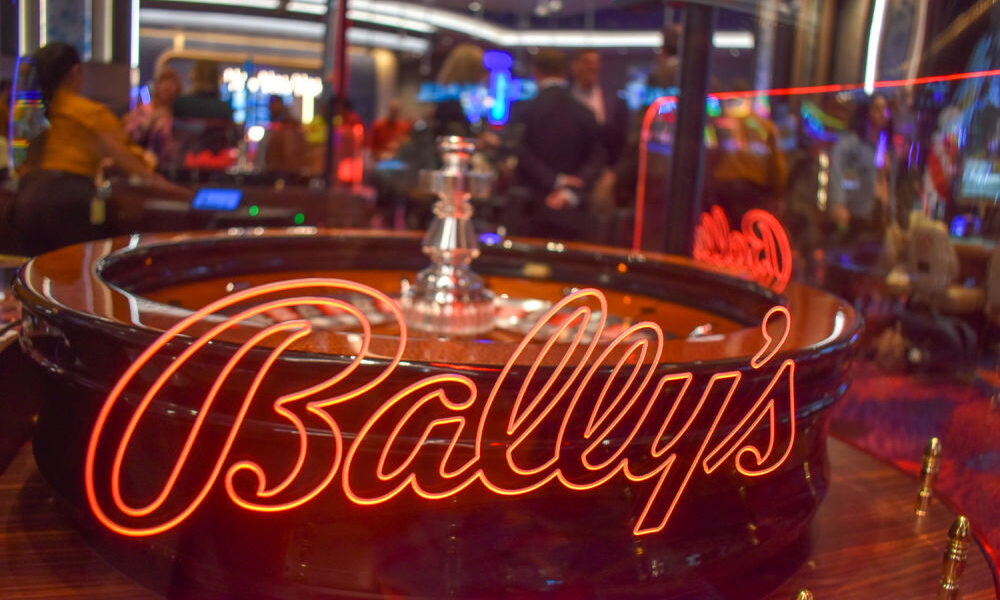Fitch Ratings put a Rating Watch Negative alert on Bally’s Corp.’s debt Monday. The message follows Bally’s announcement of a $3.2 billion sale of Gamesys to Intralot.
According to Fitch, the notification “reflects elevated EBITDAR leverage from the pending combination of its international interactive business with Intralot,” as well as the risks involved with its sale and leaseback of Bally’s Twin River-branded casinos in Rhode Island.
Bally’s is expected to use the proceeds from the Gamesys sale toward retirement of debt due in 2028 and fund construction of Bally’s Chicago, the $1.7 billion megaresort currently arising in the Windy City.
“However, if leverage remains elevated or Bally’s is unable to release the Twin River property from its collateral pool, the rating could be downgraded,” Fitch warned. Bally’s credit is rating B-, reflecting the casino company’s debt load, “which exceeds Fitch’s downgrade sensitivities.”
Fitch furthermore cautioned that the execution risks of Bally’s Chicago and ongoing pressure on United States-derived cash flow act as additional drags on Bally’s rating. Citing the intricacy of today’s Intralot deal, Fitch said the alert could take as many as six months to resolve.
The ratings agency went on to unpack the Bally’s/Intralot transaction. Bally’s is to receive $1.7 billion in cash and 60 percent of a merged Intralot/Gamesys subsidiary. It will leave Bally’s debt-to-cash flow ratio at 10 times.
The two Rhode Island casinos will be sold to Gaming & Leisure Properties Inc. (GLPI) for $735 million and leased back to Bally’s. “Bally’s needs consent from its bank lenders or must refinance the credit facility to remove a covenant restricting the property sale,” Fitch added. “While the sale proceeds could ease Bally’s Chicago contribution burden, the covenant resolution remains uncertain.”
GLPI can buy the casinos outright on October 1, 2026, regardless of whether Bally’s refinanced them or obtained the needed consents. Bally’s will pay $58.8 million annually to GLPI for the privilege of operating the Twin River properties.
Fitch estimates that, contingent on the sale of the Twin River casinos, Bally’s should have sufficient liquidity to cover construction of Bally’s Chicago, which will carry $100 million in lease payments to GLPI. Bally’s is currently obligated to pay $450 million more toward the Chicago casino’s completion.
“The property’s scale, location in the city, and strong demographics should result in win-per-unit metrics that are in line with or stronger than comparable Chicago properties,” Fitch forecast. It cautioned, however, that the market was saturated, taxes are higher than average, and Bally’s Chicago will need time to achieve its potential.
Bally’s, Fitch related, “focuses primarily on acquiring underperforming properties at discounted valuations” and reinvests in them. The ratings agency liked the casino company’s geographic diversity, saying its customer base was “conservative” and not volatile.
As for Bally’s digital business, “Fitch does not expect it to be a material credit driver in the near to medium term.” Fitch noted that digital operations generated negative cash flow at present” and “remains uncertain as to how long it will take to achieve profitability given the number and intensity of its competitors.”
Fitch’s ratings were predicated on Bally’s could grow land-based gambling revenue 11 percent this year and six percent in 2026. The latter would be mostly due to the addition of the Queen Casino portfolio, with the remainder of Bally’s casinos flat or up two percent from 2025.
Regarding Bally’s Chicago, “Fitch expects a slow ramp up at the property, which may take several years to reach an adequate return on investment.” Interactive revenue was anticipated to decline four percent this year, with U.S.-interactive return on investment going from negative to neutral in 2026.
At the end of the first quarter, Bally’s had $210 million cash on hand as well as $135 million drawn from a $620 million line of credit. The latter matures in October 2026.


